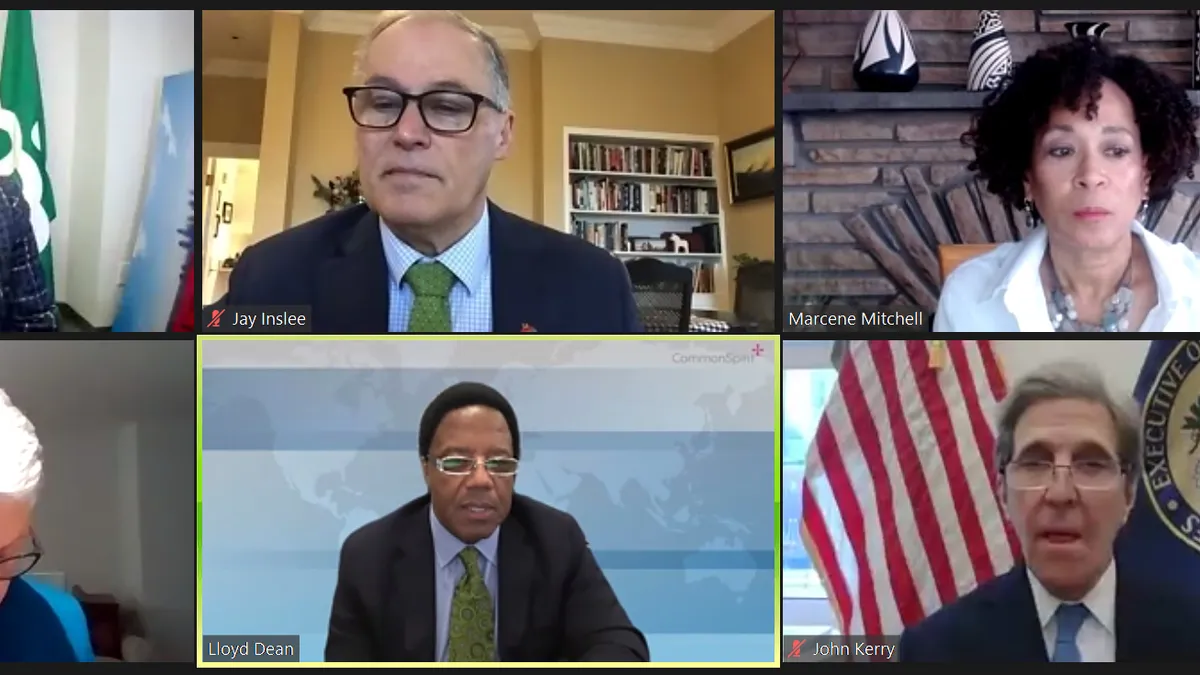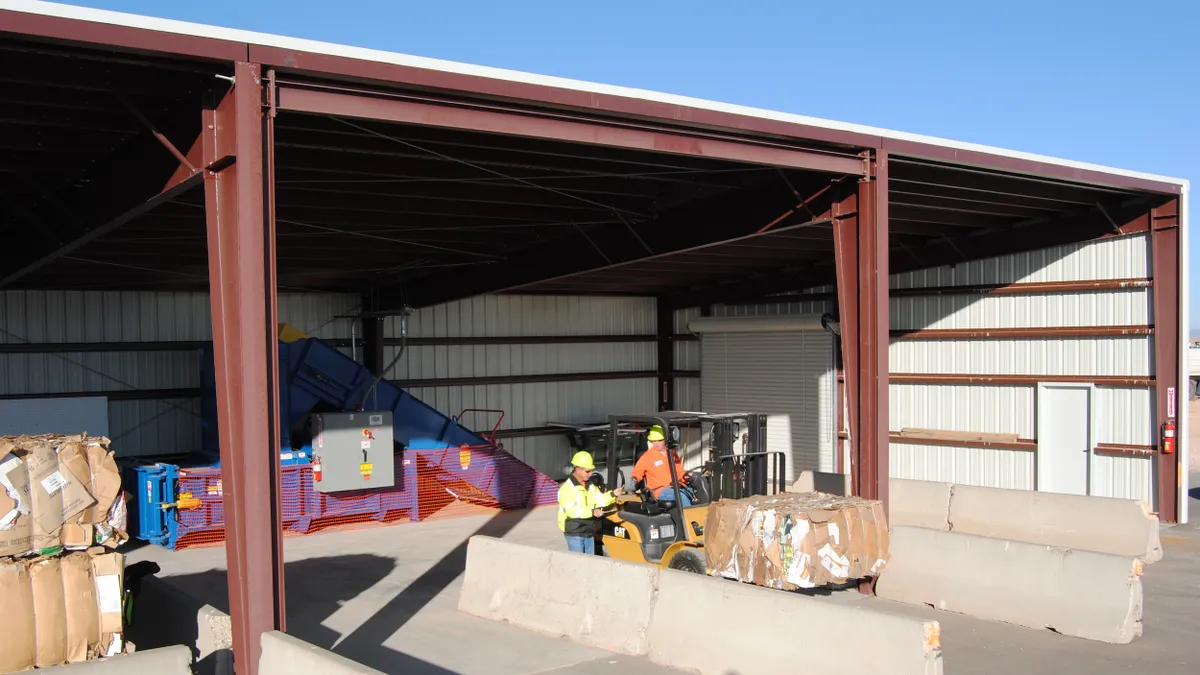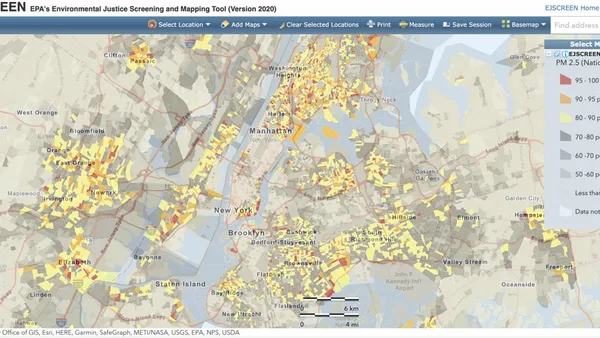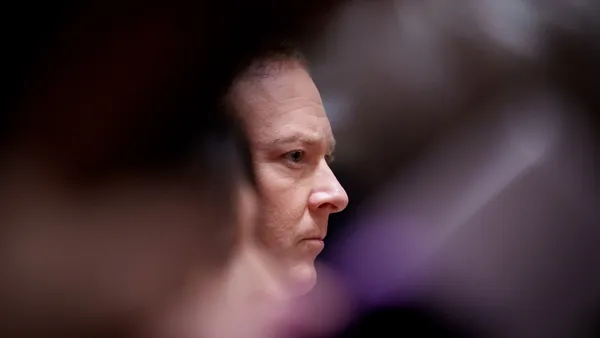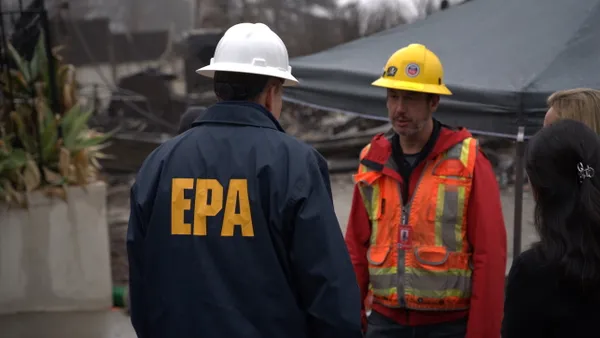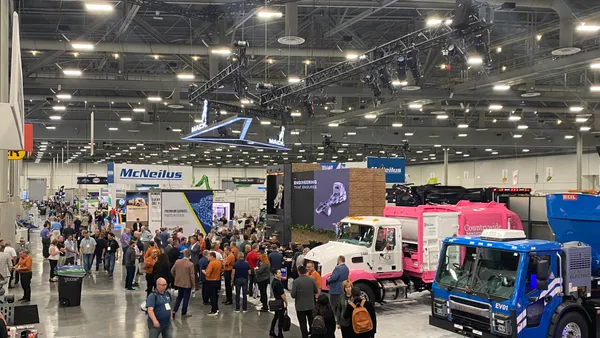Dive Brief:
- To complement the United States' return to the Paris climate agreement, elected officials joined the business and nonprofit community to launch the "America Is All In" coalition, which aims to collaborate with the federal government on the fight against climate change.
- Co-chaired by former New York City Mayor Michael Bloomberg, Washington Gov. Jay Inslee, Charlotte, North Carolina Mayor Vi Lyles and CommonSpirit Health CEO Lloyd H. Dean, the group has pledged to cut carbon emissions by at least 50% from a 2005 baseline by 2030, and to achieve net zero emissions by 2050.
- The newly formed coalition builds on the work of the "We Are Still In" effort, which brought together state, tribal and local governments, businesses, academic institutions, nonprofits and other groups to curb emissions in the absence of federal aid. With President Joe Biden’s administration pledging action on climate change, officials said this new initiative can supercharge those efforts.
Dive Insight:
Biden marked his first day in office by taking steps to rejoin the Paris agreement. Following former President Donald Trump's withdrawal from the agreement in 2017, a slew of states and cities pledged to uphold the goals of the accord. And thanks to those local-level efforts, the U.S. did not fall too far behind.
Indeed, a report from America's Pledge issued last year found that states, cities and businesses accelerated their decarbonization efforts despite major economic and national political headwinds.
"Cities have been at the forefront of taking climate action, even in the absence of a federal commitment," Lyles said during a webinar to mark the coalition’s launch. "Today, as we re-enter the Paris agreement, we are taking a vital step to reestablish the United States' leadership on climate, rejoining the global community."
Some federal leaders have said the local actions taken on climate change over the past four years have given them hope for the future. White House National Climate Advisor Gina McCarthy said grassroots efforts led by Bloomberg Philanthropies and local governments gave "vibrancy and hope at the state and city level."
And former Secretary of State John Kerry, who is now the first U.S. special presidential envoy for climate, said the efforts of local leaders has kept the country engaged in the climate fight, at a time when leaving the agreement could have spelled disaster for the movement. "For the last four years, there were a lot of times when a lot of us thought that the failure of this enterprise might rest on one word, and the word was Trump," Kerry said.
Now that the federal government is involved, Inslee said the coalition hopes to encourage more members to join. It also aims to encourage more partnerships on decarbonization across jurisdictional lines and help enshrine state policies around emissions in law to prevent backsliding. He also said Congress, which has begun to explore how to legislate on the issue, must take a leading role and not leave progress up to Biden’s executive actions.
"Not only do we need the federal government, it needs to be a mutual partnership, it needs to be reciprocal," Baton Rouge, Lousiana Mayor Sharon Weston Broome said.
Cities have "continued to step up to the plate" alongside other non-federal actors in the last four years, Lyles said. "The Biden/Harris administration can look to cities as laboratories for policy and innovation, and we have proven solutions to the challenges of this crisis," she said.
Officials cautioned though that there is still a long way to go, echoing previous public statements from administration officials. Experts have warned that while the U.S. cut carbon emissions by 9% last year, primarily because of the effects of the coronavirus pandemic reducing the environmental impact of transportation and other sectors, the economic rebound could derail further progress on cutting emissions.
Meanwhile, local leaders are also grappling with challenges tied to measuring emissions, as a recent study found cities are under-reporting emissions by an average of 18.3%. The discrepancy has been attributed to a lack of guidance and resources.
The post-COVID recovery cannot be focused on "business as usual," as leaders must think differently about how they can cut emissions and make infrastructure more resilient, Lyles said. Governments at all levels cannot afford to "take our foot off the electric pedal," Inslee said.



